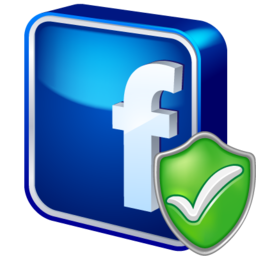How Do I Stay Safe On Facebook?

 With all the news about spam, phishing, and scams on the internet, it may start to seem like a scary place where you are just a random encounter away from having all sort of problems. Although there is always that possibility, practicing a few basic habits can sometimes make all the difference.
With all the news about spam, phishing, and scams on the internet, it may start to seem like a scary place where you are just a random encounter away from having all sort of problems. Although there is always that possibility, practicing a few basic habits can sometimes make all the difference.
First, let me assure you that the technology (in this case Facebook) is not to blame for the problems that a few devious people get on there and cause. There is nothing wrong with social media and its ability to connect you to people you know for the sharing of ideas and life events. The problem is when we get a little too trusting of the other stuff we see flying around our newsfeeds.
- The Ads: Generally, just don’t click these! Facebook earns its share of income through selling ad space to advertisers. This is nothing new, but the problem is that anyone with an email and a credit card can create one of those ads. So when you click on an ad for a steal of a deal, or to try a new website or blog, you never know exactly what’s going to happen when it takes you off of Facebook and onto another site. The same can be true for the big companies like Walmart, Fox, Dell, and others. This is because, until they get caught, scammers can create ads which look to be from these trusted places, yet still go somewhere else. Avoiding these altogether is the best strategy.
- Shared Links: Now that we can share things we find on the internet with others easily, we seem to do it a lot! Sharing things is not bad in itself, but the problem is that most people click the share button without doing due diligence or vetting the information shared. In the case of some misinformation about a political candidate, it’s aggravating at worst. But in the case of scam sites or apps, this can be a very bad thing. They key is to have a healthy skepticism about the links you see shared by your friends, understanding they may have sent it along without even reading past the excerpt. All shared links should point to where they say they do. Simply hover you mouse over the link and then look in the bottom-left of your browser. You will be able to see the website address the link truly points to, and if the domains (www.something.com) don’t match, don’t click it. Even if they do match, consider where it will lead you. Have you ever heard of crazysite.net or fishysoundingthing.com? Stick to the places you know already, and leave the new places to others to deal with.
- Friend Invites: This one is easy. If you don’t know the person, don’t accept their friend invitation! No one gives you anything for having a lot of friends, or having more friends than someone else, plus people you don’t know (or barely know) won’t care if you don’t accept them. They won’t even get anything saying you rejected their invite, so there’s no pressure to just decline the invite. Your friends list is like your house, letting people in will give them access to many trusted areas, including your attention through your newsfeed. Guard this with vigor!
- Authorizing Sites/Services: You’ll always get a window asking you to do this, so take a minute to read it and understand how much information the site or service wants to gain access to. Only authorize sites you know and trust, otherwise just cancel. This is a primary conduit for most malicious takeovers of your account and spam to your friends, so only authorize trustworthy places.
But What If I Don’t Remember All This Stuff?
- Stay on your Page.
- Stick to your Newsfeed.
- Only click Facebook functions. (Things such as Like, Share, Join, Follow, or other functions on Facebook which keep you on Facebook.)
- If uncertain, don’t click it.